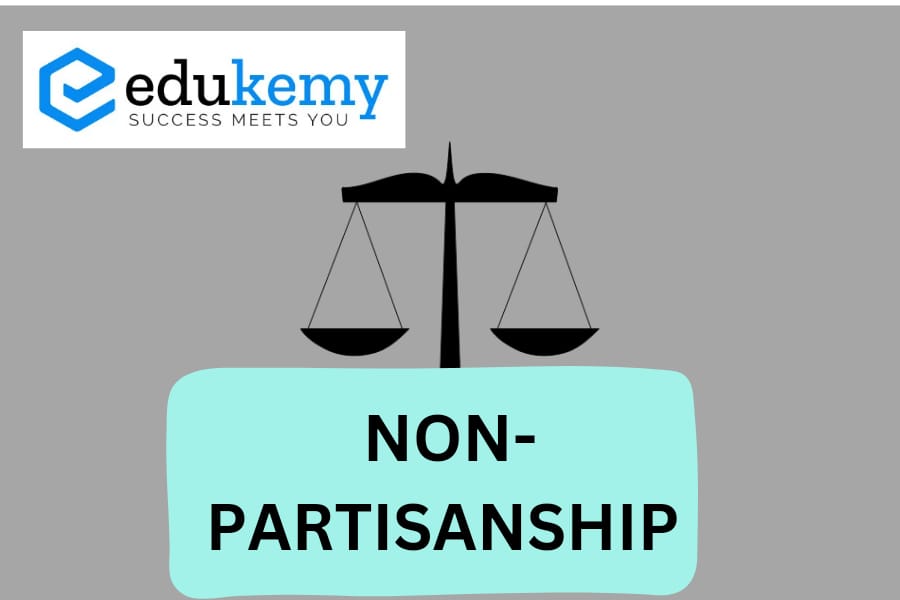
Non-partisanship refers to the principle or practice of not being aligned with or supporting any particular political party or faction. It’s often associated with neutrality, objectivity, and independence in decision-making processes, especially in contexts such as governance, public administration, journalism, and advocacy.
In governance, non-partisanship can be important for ensuring that decisions are made based on merit, evidence, and the public interest rather than partisan agendas. Public administrators and civil servants, for example, are often expected to carry out their duties in a non-partisan manner to maintain the integrity and impartiality of government institutions.
In journalism, non-partisanship is often seen as essential for maintaining credibility and trust. While some media outlets openly align with specific political ideologies or parties, others strive to report news in a balanced and impartial manner, presenting multiple perspectives without bias.
Non-partisanship is also valued in advocacy and activism, particularly in efforts to address issues that transcend partisan divides. By focusing on common goals and collaborating across political lines, non-partisan organizations and movements can often achieve broader support and make more significant progress on their objectives.
FAQs
Q: What is non-partisanship?
Non-partisanship refers to the principle or practice of not being aligned with or supporting any particular political party or faction. It involves neutrality, objectivity, and independence in decision-making processes.
Q: Why is non-partisanship important in governance?
Non-partisanship in governance helps ensure that decisions are made based on merit, evidence, and the public interest rather than partisan agendas. It maintains the integrity and impartiality of government institutions, promoting fairness and accountability.
Q; How does non-partisanship benefit journalism?
Non-partisanship in journalism is crucial for maintaining credibility and trust. By reporting news in a balanced and impartial manner, journalists can present multiple perspectives without bias, enabling audiences to form informed opinions.
Q: What role does non-partisanship play in advocacy?
Non-partisanship in advocacy promotes cooperation and inclusivity in addressing societal issues. By focusing on common goals rather than partisan divides, non-partisan organizations and movements can garner broader support and achieve meaningful progress.
Q: Can individuals practice non-partisanship in their daily lives?
Yes, individuals can practice non-partisanship by critically evaluating information, engaging in respectful dialogue with others of differing viewpoints, and prioritizing the common good over partisan interests in decision-making processes. This approach fosters understanding and collaboration in diverse communities.
In case you still have your doubts, contact us on 9811333901.
For UPSC Prelims Resources, Click here
For Daily Updates and Study Material:
Join our Telegram Channel – Edukemy for IAS
- 1. Learn through Videos – here
- 2. Be Exam Ready by Practicing Daily MCQs – here
- 3. Daily Newsletter – Get all your Current Affairs Covered – here
- 4. Mains Answer Writing Practice – here

